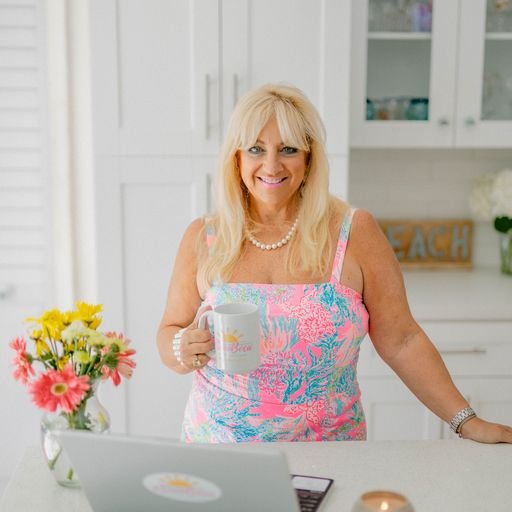First-Time Home Buying in Florida: What to Expect
Buying your first home is one of life’s most exciting milestones. It’s also one of the biggest financial and emotional decisions you’ll ever make. Whether you’re just starting out, downsizing after raising a family, or making a fresh start, your first home purchase comes with a unique mix of emotions, questions, and learning curves.
One of the most common questions I hear from first-time buyers is:
👉 “How many homes should I see before making an offer?”
Let’s dive in.
The Excitement of Homeownership
There’s nothing quite like that moment when you walk into a property and think, “This could be it.”
You picture morning coffee on the balcony, hosting your first holiday dinner, or simply enjoying a space that’s finally yours. Buying your first home is more than a financial step — it’s a lifestyle shift that brings independence and pride.
Different Chapters, Same Dream
First-time buyers come in all shapes and sizes — and at all stages of life:
-
Young professionals buying after years of renting
-
Couples blending families
-
Empty nesters purchasing a “first” home of their own after a big life change
-
Relocators starting fresh in South Florida
No matter your chapter, the dream of homeownership is the same.
The Fears (Totally Normal!)
With excitement also comes worry. You may wonder:
-
Am I making the right choice?
-
What if something goes wrong?
-
How much can I really afford?
These feelings are completely natural. The key is having the right support team to guide and educate you along the way.
How Many Homes Should You See?
Here’s the truth: there’s no magic number.
-
Some buyers fall in love with the first two or three homes they see.
-
Others need to view several before feeling confident.
The important part isn’t the number of homes you tour — it’s whether the home:
✅ Feels right
✅ Works for your lifestyle
✅ Makes sense as an investment
💡 My advice: you’ll know the right one when you feel it. Homes carry energy. If a property feels “off,” trust that. If it feels right, you’ll know.
Think About Resale (Your Exit Strategy)
Your first home doesn’t have to be your forever home, but it should be a smart step toward your future.
Even if something doesn’t bother you, it could affect resale later.
-
A train track nearby might not faze you, but could deter a future buyer.
-
On the other hand, a great view, strong location, or updated features may add long-term value.
Always balance what works for you now with what could impact your investment tomorrow.
Key Terms & Milestones to Know
This is just a partial list of definitions first-time buyers may encounter during the process. It’s meant to give you a broad overview and starting point, not a comprehensive or legal guide.
-
ALTA Statement (Settlement Statement): A detailed document you’ll receive at closing that breaks down all the costs of your transaction — loan fees, title fees, taxes, insurance, credits, and the final amount you’ll bring to closing. It’s basically the “receipt” of your home purchase.
-
Appraisal: Independent opinion of the home’s value.
-
Applications: Many Florida communities require board approval before closing.
-
ARC (Architectural Review Committee): Approves exterior changes like paint, fencing, or landscaping.
-
Assessments: Extra fees charged by an association for unexpected expenses or major projects (e.g., new roof, hurricane repairs, structural upgrades). These can be one-time or spread out over months/years.
-
Closing Companies vs. Attorneys (Florida-Specific): In Florida, buyers often close with a title company, which handles the closing paperwork, title search, and issuance of title insurance. However, many buyers (especially first-timers) choose to use a real estate attorney for added legal guidance. Both can facilitate closings — the choice is up to the buyer, unless specified otherwise in the contract.
-
Closing Costs: Extra fees at the end (2–5% of the loan amount).
-
Condo Milestones: Florida now requires milestone inspections — structural reviews of load-bearing walls and safety systems.
-
Escrow: Neutral account holding funds until closing.
-
HOA (Homeowners Association) & COA (Condo Association): Groups that manage community rules, fees, and common spaces.
-
HOA/Condo Documents & Rules: Always review fees, rental restrictions, and pet policies.
-
Inspection: A professional check of the property (roof, 4-point, wind mitigation are common in Florida).
-
Insurance Milestones (Florida-Specific): Buyers here will need homeowners insurance, often flood insurance, and sometimes hurricane/windstorm coverage.
-
Monthly Maintenance Fees: Regular payments to cover community expenses like landscaping, security, pool service, reserves, and insurance.
-
Pet Restrictions: Rules on number, size, or breed of pets. (Note: Emotional Support Animals and Service Animals are exempt under federal law with documentation.)
-
Pre-Approval: A lender letter showing what you can borrow.
-
Proof of Funds: Bank statement showing money for down payment & closing costs.
-
Reserves: Association savings for large repairs (roof, elevators, paving).
-
Survey: A drawing or map of the property prepared by a licensed surveyor that shows boundary lines, lot size, easements, and any encroachments. Lenders and title companies often require it to confirm property details before closing.
The recent National Association of Realtors (NAR) settlement has created big changes in the way real estate commissions are handled and disclosed. For years, commission details were mostly negotiated behind the scenes between brokers. The settlement shifts that by requiring more transparency and written agreements, especially for buyers. What this means for you: as a homebuyer, you’ll have a clear understanding of how your agent is compensated, what services they provide, and the value of having professional representation during your purchase. These changes are designed to give buyers more clarity, more choice, and more control in the process.
From NAR:
Here is what the settlement means for homebuyers:
- You will sign a written agreement with your agent before touring a home.
- Before signing this agreement, you should ensure it reflects the terms you have negotiated with your agent and that you understand exactly what services and value will be provided, and for how much.
- The buyer agreement must include four components concerning compensation:
- A specific and conspicuous disclosure of the amount or rate of compensation the real estate agent will receive or how this amount will be determined.
- Compensation that is objective (e.g., $0, X flat fee, X percent, X hourly rate)—and not open-ended (e.g., cannot be “buyer broker compensation shall be whatever the amount the seller is offering to the buyer”).
- A term that prohibits the agent from receiving compensation for brokerage services from any source that exceeds the amount or rate agreed to in the agreement with the buyer; and,
- A conspicuous statement that broker fees and commissions are fully negotiable and not set by law.
- Written agreements apply to both in-person and live virtual home tours.
- You do not need a written agreement if you are just speaking to an agent at an open house or asking them about their services.
- The seller may agree to offer compensation to your agent. This practice is permitted but the offer cannot be shared on a Multiple Listing Service (MLS)— MLSs are local marketplaces used by both buyer brokers and listing brokers to share information about properties for sale.
- You can still accept concessions from the seller, such as offers to pay your closing costs.
My Role As Your Realtor
Here’s how I help first-time buyers:
-
Share insights on design possibilities, views, and resale potential
-
Guide you through applications, documents, and deadlines
-
Give honest feedback while staying within Fair Housing guidelines
My role is to help you make a confident, informed choice.
The Growth
First-time home buying is a mix of growing pains and growing pride. Every milestone — from pre-approval to closing day — brings you closer to your goal.
It’s a journey that takes you from uncertainty to confidence, and from dreaming to holding the keys to your very first home.
Final Thoughts
Don’t stress about how many homes you “should” see. Instead, focus on:
✨ How a property feels
✨ How it fits your lifestyle
✨ Whether it makes sense as an investment
Your first home doesn’t have to be your forever home — but it can be the perfect first step.
⚖️ Disclaimer: This blog post is for educational purposes only and not meant as legal, tax, or financial advice. Always consult with qualified professionals when making real estate decisions.

About Michele Bellisari
Michele Bellisari is the founder of #SoooBoca® Lifestyle & Media based in Boca Raton and a Realtor with Real Broker.
If you are thinking of buying or selling real estate in Boca Raton and any of the surrounding cities let her help you out! Thinking of purchasing a vacation home?
Michele blogs, vlogs, posts and shares all things Boca Raton, South Florida & Beyond from events, people, food, travel, home decor, fashion, beauty and real estate!
You can find more at www.soooboca.com and on all the socials @soooboca. Information in this post should be verified with your accountant, attorney and or financial planner as well as the state of Florida.
Information in posts should be verified independently. Information deemed reliable, not guaranteed.
How Can I Help You Buy or Sell A Property?
Click to Get Your Home Valuation
Palm Beach County Neighborhood Snapshots
- Sell Your Boca Raton Home Before Summer
- The Joy of Downsizing in South Florida: Your Next Chapter Awaits
- Downsizing in Boca Raton: Expert Tips for Moving to a Smaller Home
- Grief and Selling Your Inherited Property: A Personal Journey
- How to Make Your Home Listing Shine: Essential Tips from a Listing Agent
Categories
Recent Posts













